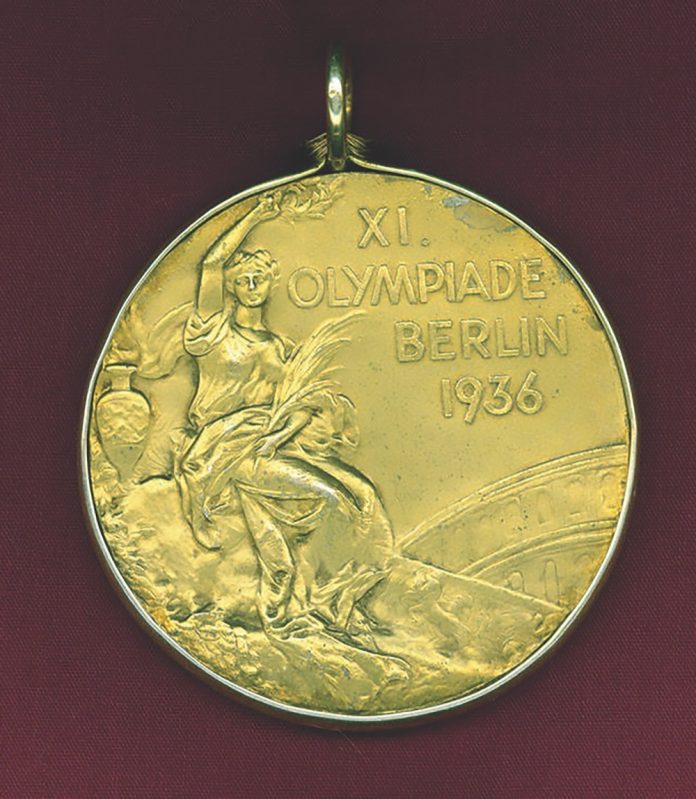An email brought to my attention the following notice: “1936 Berlin Olympic Gold Medal Won by ‘Boys in the Boat’ Rower John White to be Auctioned.” The sender attached the full news item and added, “My friend and I are saddened by this news.”
To continue reading…
This article is exclusively for Rowing News subscribers. For as little as $5 a month, you can get access to the best quality, independent reporting on all the issues that matter to the North American rowing community.
Already a subscriber? Login
My first response was also to feel sad. Is the almighty buck the bottom line for everything? This news sat with me for a while as I decided what I wanted to say about it. By coincidence, at about the same time I received this, the internet reposted a story from five years ago. Kareem Abdul-Jabbar, one of the greatest basketball players of all time, had auctioned off four of his six NBA-championship rings and three of his six MVP trophies for $2.8 million in 2019.
Why was the King of the Skyhook doing so? He put the money into his Skyhook Foundation that “gives kids a better idea of where they can go with their education. It puts them on a path to becoming scientists, technicians, and engineers.
“Kids all want to become LeBron James or Jay-Z or Beyoncé, and they really don’t have realistic ideas about what they can do with their educational opportunities.
“When it comes to choosing between storing a championship ring or trophy in a room, or providing kids with an opportunity to change their lives, the choice is pretty simple,” Abdul-Jabbar said. “Sell it all.”
I felt better immediately about Abdul-Jabbar’s sale. What better reason for parting with a room full of trophies? It got me wondering about other sales of sports memorabilia. What were the motivations? This is the kind of thing for which the internet is superb. In no time at all, I had tracked down numerous cases of auctioned-off Olympic medals.
Mark Wells, who won a gold medal on the 1980 “Miracle on Ice” hockey team, sold his for $310,000 to pay for medical treatments related to a rare genetic disease that damaged his spinal cord.
Mark Pavelich, a member of the same hockey team, sold his for $263,000 so that his daughter could “get a step forward in life.”
Otylia Jedrzejczak of Poland sold her gold medal from Athens for winning the 200-meter butterfly for $80,000 to benefit a Polish charity that helps kids with leukemia.
“I don’t need the medal to remember,” she said. “I know I’m the Olympic champion. That’s in my heart.”
I don’t know much about Johnny White, who rowed in the four seat in the famous Husky Clipper. He was 20 years old when they won in Berlin. He graduated from the University of Washington with a degree in metallurgical engineering and later worked for Bethlehem Steel in sales, eventually becoming general manager of sales.
There’s not much about him in Daniel J. Brown’s best-seller, The Boys in the Boat. White died in 1997 before the book’s 2013 publication. After thinking of reaching out to the family to ask about him and what the medal meant to him, I decided that was not appropriate. It was his medal to do with what he wanted. I’ll do a lot for my readers but I’m not going to be judgmental or scolding. Who knows why the sale is important or necessary?
I think of my close friend Jim Chapin, who was the six man in Trinity College’s Ladies Plate-winning eight at the 1976 Henley Royal Regatta. After looking at his medal for a few months, he gave it to his coach, Norm Graf. I was shocked at first. Did it mean so little that he gave it away?
But Jim said because it was so meaningful he wanted to give it to the man who guided them through their season to victory.
“I have my memories, and Charlie Poole and I both have our names engraved on the trophy as captains. That’s good enough for me. I wanted Coach to have it; it was the culmination of a lifetime of coaching for him, and I wanted to thank him.”
The on-line auction will begin in May and continue until June 9, the Gray Flannel Auctions representative told me. The opening bid is $10,000. Have they auctioned off other rowing gold medals? Their rep pointed me to basketball and swimming medals that have sold from $60,000 to $250,000–but none for rowing. The upper end seems to be Bob Beamon’s historic world-record 29.2 feet in the long jump at the 1968 Mexico Games. It went for $440,000.
It would be nice if some tech billionaire bought White’s medal and donated it to the George Pocock Rowing Foundation in Seattle, where it could be seen by scores of people. An artifact like this is inspirational.
Johnny White didn’t win his medal for me or for us. He won it for himself and for the other eight guys in the boat. If his heirs want to sell it, who are we to say we know better?

